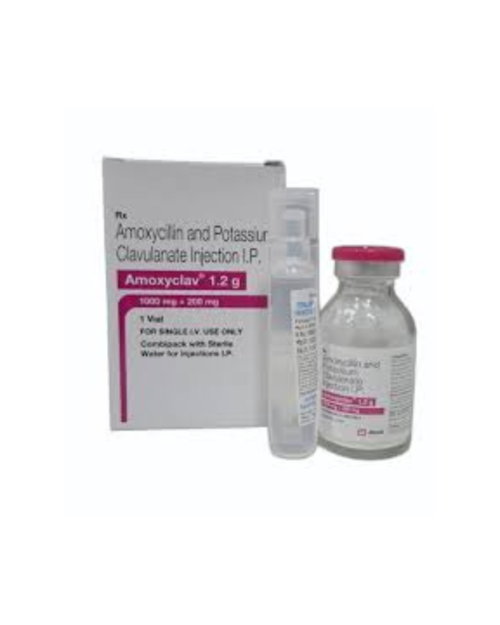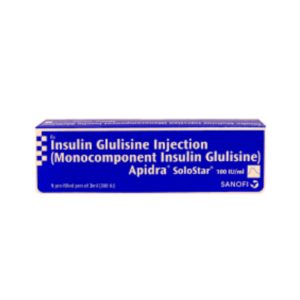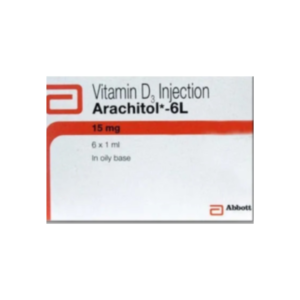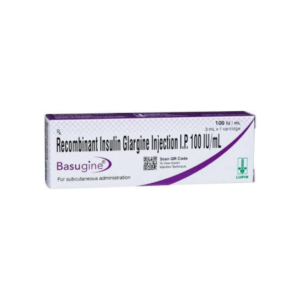AMOXYCLAV 1.2GM VIAL
₹157.50
Amoxyclav 1.2gm Injection is a combination antibiotic containing Amoxicillin (1000 mg) and Clavulanic Acid (200 mg). This formulation is designed to treat a wide range of bacterial infections by inhibiting bacterial cell wall synthesis and counteracting beta-lactamase enzymes that can render amoxicillin ineffective. It is administered intravenously in hospital settings under medical supervision.
Description
Amoxyclav 1.2gm Injection is a parenteral antibiotic used to manage various bacterial infections. The combination of amoxicillin and clavulanic acid enhances the efficacy of amoxicillin against beta-lactamase-producing bacteria. This makes it effective against a broad spectrum of pathogens, including both gram-positive and gram-negative bacteria.
Common Indications:
-
Respiratory tract infections (e.g., pneumonia, bronchitis)
-
Urinary tract infections (e.g., cystitis, pyelonephritis)
-
Skin and soft tissue infections (e.g., cellulitis, wound infections)
-
Bone and joint infections (e.g., osteomyelitis)
-
Intra-abdominal infections
-
Dental infections
-
Prophylaxis for surgical procedures
Dosage:
-
Adults and Children ≥12 years: 1.2 grams IV every 8 hours for mild to moderate infections; every 6 hours for severe infections.
-
Children (3 months to 12 years): 30 mg/kg IV every 8 hours for mild to moderate infections; every 6 hours for severe infections.
-
Neonates (0 to 3 months): 30 mg/kg IV every 12 hours for mild to moderate infections; every 8 hours for severe infections.
Administration:
The injection is administered intravenously by healthcare professionals in a clinical setting. It is essential to follow the prescribed dosage and duration to ensure the effectiveness of the treatment and to minimize the risk of antibiotic resistance.
Side Effects:
Common side effects may include:
-
Nausea
-
Vomiting
-
Diarrhea
-
Headache
-
Dizziness
-
Skin rash
Serious side effects are rare but may include:
-
Severe allergic reactions (e.g., anaphylaxis)
-
Liver dysfunction (e.g., hepatitis, jaundice)
-
Severe skin reactions (e.g., Stevens-Johnson syndrome)
-
Seizures (especially in patients with renal impairment)
Patients should inform their healthcare provider if they have a history of allergies to penicillin or cephalosporins, liver disease, or kidney problems.
Precautions:
-
Pregnancy: Use only if clearly needed and prescribed by a doctor.
-
Breastfeeding: May pass into breast milk; monitor infants for adverse effects.
-
Renal Impairment: Dosage adjustments may be necessary.
-
Liver Impairment: Monitor liver function during treatment.










Reviews
There are no reviews yet.